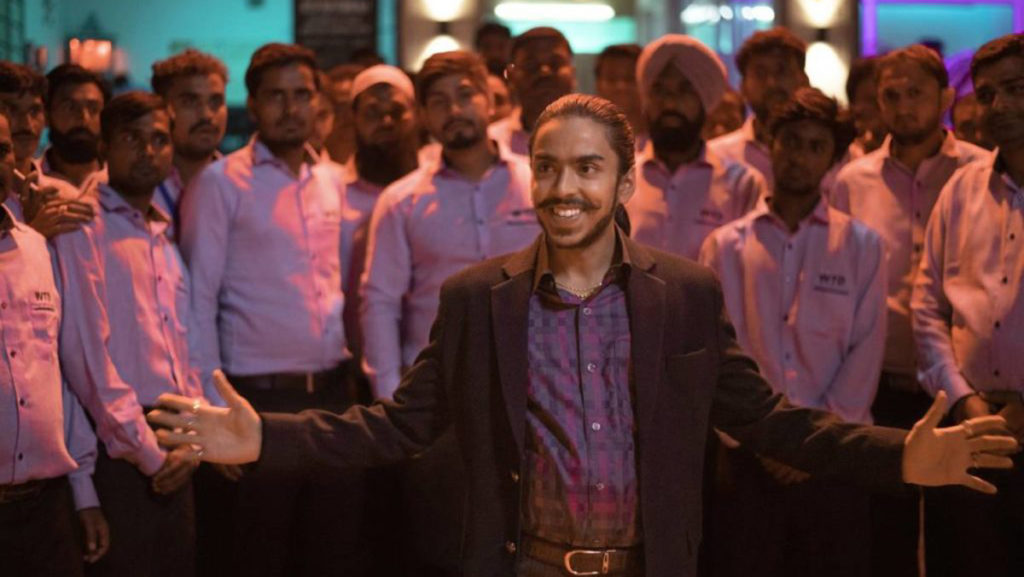The India in “The White Tiger,” directed by Ramin Bahrani and based on the novel by Aravind Adiga, represents a series of dichotomies — the wealthy and the impoverished, the metropolitan and the shabby, the light and the dark. These qualities define both the bustling country and the characters who live in it. The story, much like the tiger it takes its name from, is rare in wit and splendor as it examines these conflicting circumstances. Burning slowly until it is unnervingly hot, “The White Tiger” turns its intense gaze at a world, approximately a decade ago, that is tenacious and pressing.
Balram Halwai (Adarsh Gourav), a poor villager, is shackled to a life working in his family’s tea shop. Throughout the film, Balram writes an email to Chinese Premier Wen Jiabao preceding Jiabao’s visit to India in 2010. Balram’s written words double as narration for the main events of the story, which take place a few years prior. The film maneuvers between Balram’s present, when he writes the email, and his past, as he attempts to break free of his family’s station.
Balram’s email keys viewers in on the most important point in “The White Tiger.” Balram feels he must rise above his sociopolitical standing and unfetter himself from poverty. To do this he becomes a driver for an upper-class family, his ordinary, sky blue button-down and tan slacks the uniform that cements his place as an outsider among them.
Balram flatters his masters, namely Ashok (Rajkummar Rao) and Pinky (Priyanka Chopra), a young couple that recently returned from the United States. Compared to the Mongoose (Vijay Maurya) and the Stork (Mahesh Manjrekar), nicknames for Balram’s leering and aggressive masters who are relatives of Ashok’s, Ashok and Pinky are friendly to Balram, engaging with him on drives and acting respectfully toward him as they converse in a mix of Hindi and English.
Ashok and Balram in particular garner a close affinity, one that exists in the brightest spotlight throughout the film. Rao is charismatic and dazzling as Ashok. Balram is his jovial companion, though he becomes more of a disguised, poetic mastermind than his outwardly degenerate actions. Something more lingers within their brotherhood, a sense of intimacy and affection that Balram seems to both reject and lean toward. Is it a genuine attraction, fostered by their close encounters driving through India? Or is it deeper, a subconscious affection, for the opulent lifestyle Ashok represents? Whichever direction, Rao and Gourav are an excellent pair for “The White Tiger” to explore.
Unsurprisingly, the wealthy family — even Ashok — sees Balram as secondary and disposable. The Balram of the past asserts sincerely that his position is to serve. From the future, Balram observes that his desire to be a servant was not the result of real passion but one of centuries of prejudice and stagnation perpetuated by both the rich and the poor. Gourav is stunning and subdued in these moments of introspection, and his crafted, written thoughts to Jiabao tumble into deeper, bewitching madness as “The White Tiger” crawls to its conclusion.
The film’s most stunning moments are when Balram is forced to confront his lack of awareness — by upper-class standards — of cleanliness or social behavior while working for Ashok’s family. Balram’s rage is explosive. After one realization, he glares straight into the camera lens, the frothed-up toothpaste a halo over his yellow, crooked teeth. His smile pierces the screen, a haunting image made unforgettable by Gourav’s performance.
From the scenes set in the future — layered in elaborate, bold lighting and Balram himself dressed impeccably — viewers can tell that Balram achieved his goal. But he hints at something sinister afoot in the way he did so, a feeling solidified by the sparse yet striking score and Bahrani’s biting, cantering script. His manipulations aren’t quite revealed until the film’s end, making for a blistering, shattering finale.
Risen from the proverbial darkness, Balram makes a name for himself, but the journey, and what it cost, will shake viewers along the way.




















